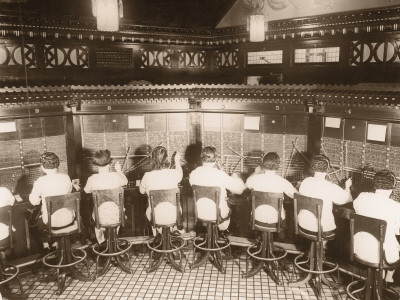I’ve always been a fan of a structured performance appraisal process and believe there is a link with employee engagement. The CIPD has recently published its annual employee survey, which indicates that employee engagement is down compared with previous years. It also indicates that there is a lack of confidence in performance appraisal processes, neither of which is good for UK businesses. So what can be done to improve employee engagement? Is there any way of improving confidence in appraisal systems?

Annual Performance Appraisals
by Telesto
The CIPD has recently published its latest employee outlook survey, which shows a lack of trust in appraisal systems.
The Chartered Institute of Personnel and Development (CIPD), in conjunction with Halogen Software, recently published the results of its 2014 Employee Outlook Survey. The survey included employees’ views on performance management processes and engagement. The overall result was that 39% of employees thought their organisation’s performance management system was fair, compared with 30% who thought it was unfair. Voluntary sector employees were most favourably disposed towards their organisations’ systems – 47%, whereas only 32% of public sector employees thought this. Only 35% of employees reported feeling engaged, which is a slight decrease on the previous year – 36% in autumn 2013, with public sector employees being least engaged at 30%.
Although the survey didn’t go into reasons for the results, as an HR professional, they concern me. Whatever the economic climate, it is my belief that employers need their staff to be as productive as possible and employee engagement is one of the means to do achieve this. Performance Appraisal is one of the tools of Performance Management and the CIPD itself acknowledges that one of the main reasons for Performance Management is to improve workplace performance. In order to do this, managers must ensure that their teams are not only capable of delivering what is required, but understand what is required of them as well.
I have had the somewhat dubious pleasure of managing someone who repeatedly told me that she did not understand what her job role was, how to do it and what the purpose of it was, despite being able to perform to an adequate standard. I tried everything I could think of to change the way she felt. This included spending days sitting with her and her “work buddy,” to ensure that all areas of work were covered and fully explained to her again. Eventually, I had to conclude that this person did not want to be at work. She left soon after, but only because she realised that she was being performance managed and that, long term, adequate really wasn’t good enough.
This individual epitomises the importance of employee engagement – this individual took up an inordinate amount of time and resources – mine, her colleague’s and her own - for very little gain, and I think all managers have had their own version of this individual.
Performance appraisals are one method by which managers can engage with their staff. It gives us time specifically set aside to let the employee talk about themselves, and everyone likes doing that. In organisations where best practice is employed, these reviews are carried out every two or three months. There are benefits to this for both the employer and employee, even though many managers I know balk at the idea. We all like to think that our bosses are prepared to give us time, and this alone may, in many cases, give the employee a more positive view of the organisation and the manager. A few positive strokes go a long way.
It is much easier to recall events that have happened in the past two or three months than it is to think of things that happened a year earlier – with the best will in the world, we all forget to record evidence at times. It is quicker to write up reports at regular intervals than to leave it until the end of the reporting year. It makes it easier to check that the employee is still ok and that nothing major is impacting on their working life. And, if something should come to light that the employee should have told you about, you’ve got a recent record that you have checked with the employee. Most public sector organisations don’t have financial reward systems, so an appraisal can be a means of rewarding an employee too, albeit not financially.
The world is changing rapidly these days, and many organisations, including those in the public sector, are going through large scale change programmes, downsizing and/or redundancy. A performance review interview gives us an opportunity to find out how our employees are feeling – they may something in a one-to-one that they won’t say in front of other people.
If the manager is feeling the stress of all the changes – and many of us are – we may not realise that our behaviour has changed and team members may not feel comfortable in saying anything in front of others, but they may well tell us behind closed doors. Of course, organisations do need to ensure that they provide managers with adequate training in order to for them to feel equipped to carry out appraisals confidently and effectively.
If we are serious about improving performance, working smarter, doing more for less, then we must ensure that our staff are working to the employer’s agenda, not their own. I would argue that employee engagement, assisted by performance reviews, is one way of doing this.

 | Managing Stress In The Workplace: How To Get Rid Of Stress At Work And Live A Longer Life ((Stres... June Promo Price reduced from $4.50 to $2.99. LIMITED OFFER. HURRY !! In this book, we will discuss in short why workplace stress affects you the way it does, the repercussions ... |
 | Kingsoft Office for Android (Free) |
How to Carry Out an Effective Performance Appraisal
Do:
Set time aside regularly to engage with staff, they are your most expensive resource.
Give the employee time to speak and tell you how they feel – about what they’ve done and any forthcoming changes in the organisation. You might not be able to change it but you might be able to dispel some myths.
Listen.
Don’t:
Rush the interview.
Keep cancelling – the employee will (rightly) think you are just playing lip service to the process.
Spend all the time talking about yourself.
You might also like
Is Work Related Romance Appropriate?Is it okay to date someone you work with? Learn the places to work that find ...
10 Reasons Why Companies OutsourceFor some reasons, outsourcing is becoming a controversial topic yet many busi...
Staffing Empowering Business EcosystemsTalent search and acquisition is the core focusing of staffing. It is a compl...




 Identity Theft and How it Feelson 02/01/2015
Identity Theft and How it Feelson 02/01/2015
 Barts Hospital - a National Treasureon 01/24/2015
Barts Hospital - a National Treasureon 01/24/2015
 Urban Foxeson 01/11/2015
Urban Foxeson 01/11/2015
 How do you know which hosting platform to choose?on 01/03/2015
How do you know which hosting platform to choose?on 01/03/2015




Comments
That sounds good. Unfortunately, my boss has just written mine, without interviewing me. I can't be bothered to read it yet...
For the first time in a long while, in my present job I am having monthly meetings with my appraiser, (who is not my line manager, strangely enough) which are more like a chance for her to check that I'm still bearing up under the strain and to pass on any comments she's heard about my performance. It also gives me a chance to pick her brains about things that I'm not sure how to handle, which is great.